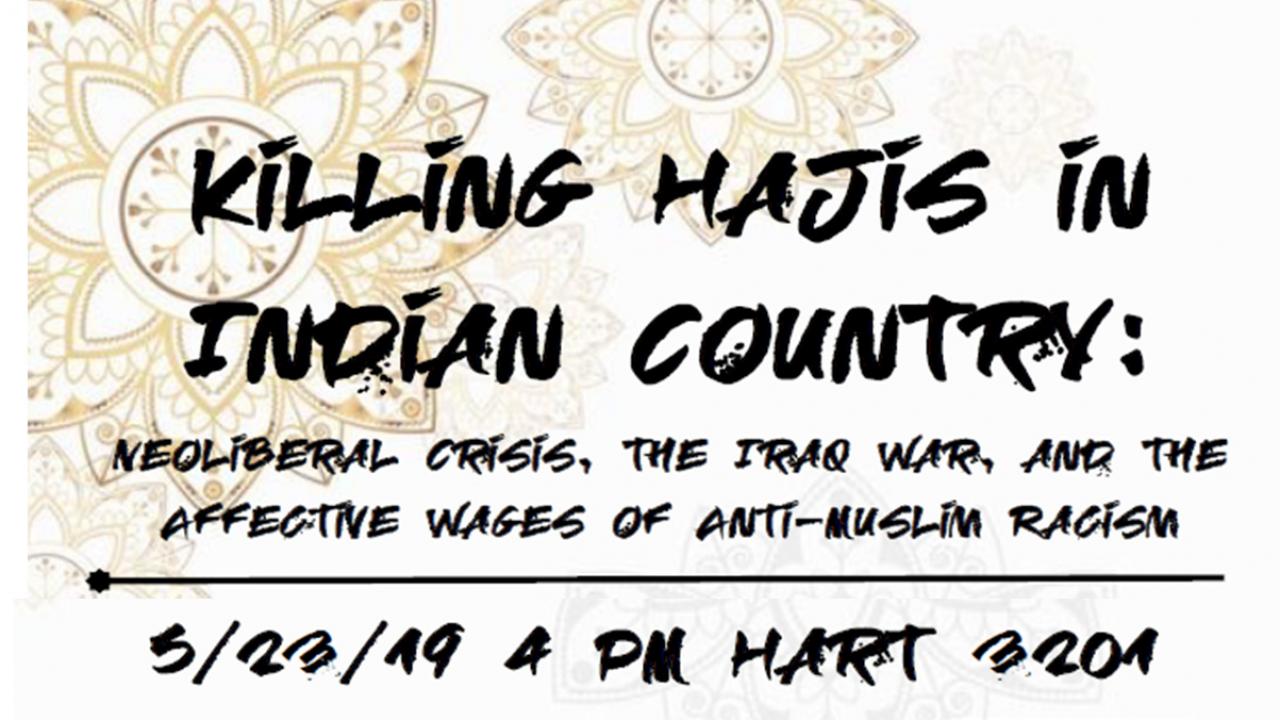
Event Date
Starting in the 1970s Neoliberalism began to undermine and chisel away at liberalism taking aim at the social wage . By the twenty-first century this had resulted in a structural crisis of overaccumulation and a political crisis of legitimacy as social dislocation and precarity became prevalent. The war in Iraq created through war and reconstruction, new spaces for accumulation. The invasion and occupation was premised on and wo rked to mainta in anti -Muslim racism in order to scaffold legitimacy for a neoliberal state that is hollowed out of its previous liberal promises. No longer off ering a social wage, this becomes the affective wages of neoliberalism, premised on the reification of ontological difference between a civilized, humane, and rational West, and a fundamentally illiberal Muslim other. At the same time that liberalism is eroded by neoliberalism, the latter draws from and reinforces the liberal logic of deflection manifest in frontier logics."
Yousef K. Baker, is an assistant professor in the International Studies Program at California State University, Long Beach. His work offers a vital contribution to the field of globalization studies through a meticulous case study, based on research conducted in Baghdad, on the changing nature of the nation-state. Through this research he demonstrates how processes of globalization have given rise to a structural tension wherein economic circuits of accumulation are transnational, whilst political legitimacy is still confined within the nation-state.
Sponsored by CRTMIL, Cultural Studies, American Studies